From war to awards: Dr. Malak Tfaily escapes past through research
ALVSCE gives Environmental Science's Malak Tfaily inaugural Early Career Research Award
Malak Tfaily Award
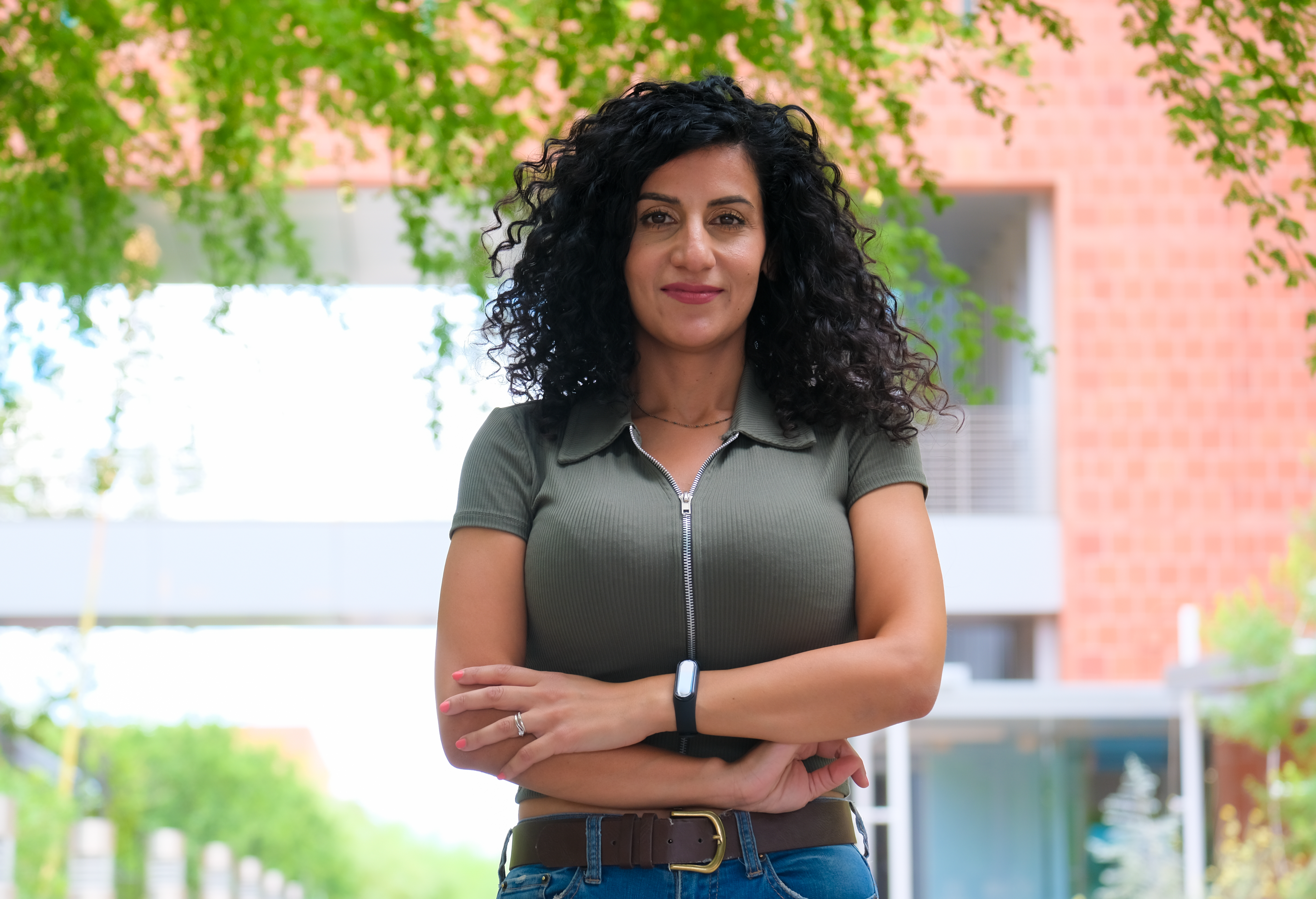
Throughout Malak Tfaily’s childhood, she often huddled in a small room with her family in war-torn Lebanon, hiding from bombshells. Motivated by her father, she left home at 23 to study in the U.S. Now, Dr. Tfaily runs a highly-successful and award-winning research lab in the Environmental Science department for the University of Arizona.
In May, the Division of Agriculture, Life and Veterinary Sciences and Cooperative Extension (ALVSCE) announced Dr. Tfaily earned the inaugural Early Career Research Award. Her lab focuses on ecosystem genomics, which she describes as how small things like genetics and metabolic features of organisms affect their larger ecosystem.
Dr. Tfaily’s high productivity in the lab contributed to the award — she currently mentors eight graduate students, each with their own funded research project, while contributing to several other faculty research projects. Since she started in the Environmental Science department, Tfaily published over 60 peer-reviewed journal articles.
Life in Lebanon
Tfaily Lebanon Hideaway
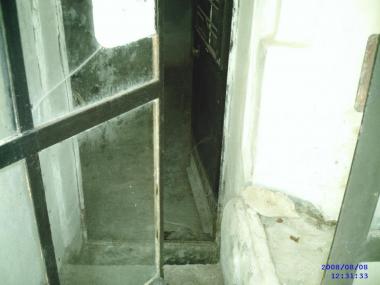
Prior to starting her career in research, Tfaily grew up in Deir El Zahrani, a small town in southern Lebanon which was a target for several attacks from Israeli military during Operation Accountability in 1993, Operation Grapes of Wrath in 1996, and the Lebanon War in 2006.
“I grew up in a warzone, sometimes hiding in a small room for 30 days at once,” Tfaily said. “The room was almost the size of my office, with cement everywhere and no windows.”
Tfaily and her three siblings looked up to their father for protection and guidance. Despite cultural norms, her father pushed her to get an education in the U.S.
“We lived in a traditional town in the Middle East, where it was normal for women to just marry and rely on the husband,” Tfaily said. “But my dad did not want us to get married until we had an education. My parents would say, ‘We want you to be educated so you can keep your head high.’”
Moving to the United States
After the Lebanon War in 2006, Tfaily was 22 years old and knew she needed to leave home to find new opportunities. With $5,000, a colander, and a lemon squeezer, she moved to Tallahassee, Florida where she was accepted into Florida State University.
Tfaily earned her doctoral degree in analytical chemistry, completed a two year postdoctoral position at the Earth , Ocean and Atmospheric Science at Florida State University, and then moved to the Environmental Molecular Science Laboratory at the Pacific Northwest National Laboratory (PNNL), run by the DoE, where she stayed for four years.
Becoming a Wildcat
Tfaily’s work at the PNNL was highly regarded — winning two awards and grabbing the attention of the University of Arizona. She was recruited here in 2018 to join a cluster of Ecosystem Genomics labs, with her’s specializing in ecosystem metabolomics.
“Between FSU and PNNL, I got this really unique skill set of diving deep into soil and providing molecular characterization of organic molecules, which we call ecosystem metabolomics,” Tfaily said. “Through metabolomics we can decipher the metabolic currencies that support microbial networks in both terrestrial and aquatic systems”
To observe tiny molecules, Tfaily uses a technique called mass spectrometry. Essentially, a mass spectrometer separates a sample into all its parts, organized by their mass and charge.
According to Dr. Jon Chorover, Environmental Science Department Head, by using mass spectrometry, Tfaily’s lab can determine the make-up of once unknown substances.
“For decades, the composition of natural organic matter has always been a mystery, a black box,” Chorover said. “But Malak has become a leader in the application of high-resolution mass spectrometry and her work is letting us open that black box.”
Chorover nominated Tfaily for the ALVSCE Early Career Research Award for her high productivity, her success in collaborative research, and her ability to mentor many students.
“When Malak came to the University, she hit the ground running at a very high speed,” Chorover said. “Most people take a couple years to get rolling, set up their lab and just get their feet under them. Malak came and bulldozed through all of that in a remarkably efficient fashion and a characteristically quiet way.”
Tfaily Lab
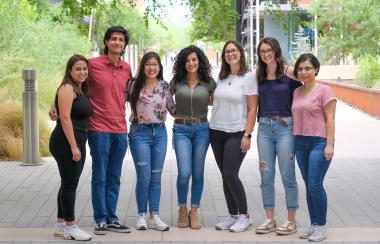
Prioritizing Student Mentorship
Tfaily’s lab is made of eight graduate students, but also goes beyond standard labs to host an undergraduate University of Arizona student and a local high school student.
Once being an international student herself, Tfaily said she establishes a strong relationship with current international students as a mentor. Of the eight graduate students in her lab, four of them are international students — two from Ecuador, one from Lebanon, and one from Iran.
Ghiwa Makke is a doctoral student in Tfaily’s lab and is an international student from Lebanon. Makke said a major reason she applied to the program was because of Tfaily’s background.
“Being an international student, she knows the struggle we’ve been through, moving to a new country and starting a new life,” Makke said. “Her being from Lebanon helped me because she understands where I’m from, she knows the language and my culture so that really helps with the transition.”
Tfaily’s strong work ethic is also transferred to her students. When many labs, including Tfaily’s, were shut down due to COVID-19, she continued to work directly with her students to conduct data analysis, write papers on their research, and write review papers. All of her students said Tfaily pushes them to work hard, but in the end is worth it because of their research success and new opportunities.
“Sometimes I can be tough on my students and push them a lot, but I think it will show them what real life is,” Tfaily said. “I work hard here because that’s how it was growing up at home. We had to work hard to survive, so when I got here, I felt I have to work harder because of everything I have available to me.”
Dr. Tfaily’s Future
Tfaily arrived at the Environmental Science department at full speed and has not slowed down since. Applying her expertise in analytical chemistry to the environmental science field, she created many opportunities to collaborate with other faculty and conduct her own research.
Just this summer, Tfaily secured eight new awards from DOE, NIH, NASA, EFRI, ELISA, and Grantham Foundation. These projects range from “The bioweathering dynamics and ecophysiology of microbially catalyzed soil genesis of Mars regolith” to “Understanding how volatile mediated plant and microbial interactions extend the rhizosphere and enhance soil carbon storage”.
All of her publications can be found on her lab’s website.
While earning many grants, Tfaily maintains that her students are the most important aspect of her work. In many of her lab’s projects, her students earned lead authorships. Moving forward, Tfaily said she intends to continue this path of success and work toward the same goals.
“I promised my dad there are things ahead that will make him even more proud of me,” Tfaily said. “I will keep doing what I’m doing, as long as I am still good at it and still empowering students. Really, I just want to keep growing. I don’t want to sit down, it’s not in me to do that.”
Ghiwa Makke
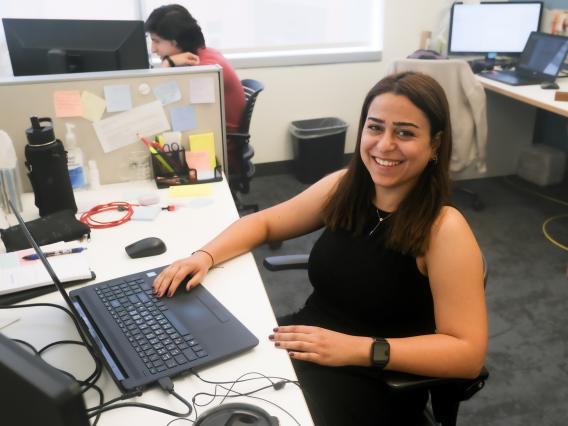
Ghiwa is a doctoral student working on collaborative research project titled, "Growing a new science of landscape terraformation: The convergence of rock, fluids, and life to form complex ecosystems across scales" and funded by NSF.
Read more about Ghiwa's workChristian Ayala
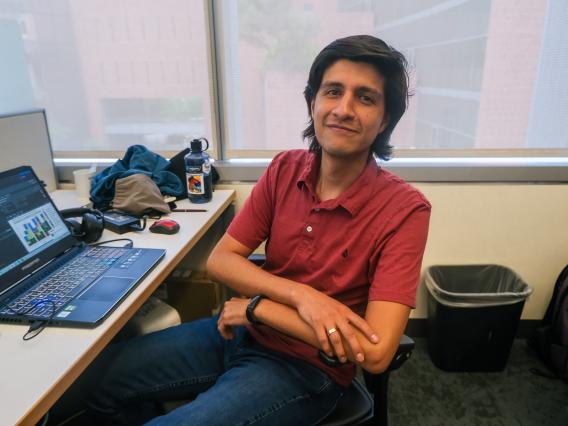
Christian Ayala is a doctoral student working on several projects, including one titled, "Overcoming systems biology bottlenecks: a pipeline for metabolome data processing analyses and multi-omics integration" and funded by the DoE.
Read more about Christian's workTaylor Portman
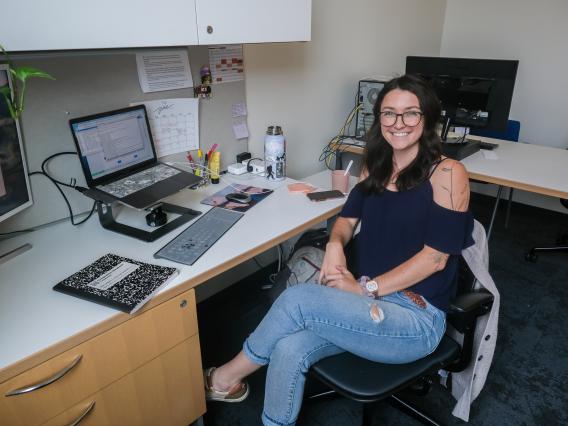
Taylor Portman is a master's student co-advised by Dr. Betsey Arnold and working on a project titled, "Deciphering plant-plant, plant-microbe, and plant-soil interactions driving biological invasion in a southwestern desert grassland."
Read more about Taylor's work
